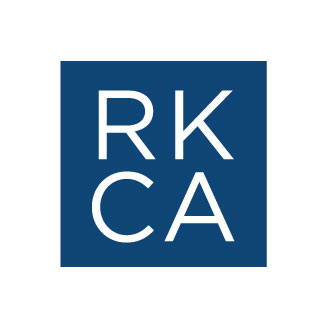I’m writing this month’s RKCA Insights from our basement on Labor Day Weekend. My daughters are engrossed in “Cinderella” on Disney; and the plans we had for time outside and at the pool have been thwarted by a rainy weekend. And if this were not the tenth time they’ve watched it in the last month, I’d close my laptop and watch with them. But I am fixating on how much time I spent this morning watching the news, Weather Channel app, and the Dark Sky app, trying to figure out the weather…only to be wrong. This manipulation by meteorologists started in elementary school when “heavy snowfall” nights turned out to be only a dusting, and not a snow day at home. But I am not alone, and I appreciate the solidarity I share with all of you on this email list who have had golf games, sporting events, concerts, grass cutting, and other activities changed due to “unpredictable” weather.
There is an interesting part in Nate Silver’s book “The Signal and the Noise” where he’s discussing the Weather Channel that I wanted to share. Silver writes:
“The meteorologists at the Weather Channel will fudge a little but under certain conditions. Historically, for instance, when they say there is a 20 percent change of rain, it has only rained about 5 percent of the time. In fact, this is deliberate and is something the Weather Channel is willing to admit to. It has to do with their economic incentives. People notice one type of mistake — the failure to predict rain — more than another kind, false alarms. If it rains when it isn’t supposed to, they curse the weatherman for ruining their picnic, whereas an unexpectedly sunny day is taken as a serendipitous bonus.”
It’s my opinion, people don’t deal with probabilities well. It’s not necessarily the accuracy of what you predict that matters, it’s what people experience as the outcome. If I tell my kids there is a 75% chance we are going to the pool, only to have it rain, they just assume I’m wrong.
At RKCA, we see this occurrence play out all the time in companies we work with when there is dysfunction or an issue. In most organizations, assignment of difficulty or odds of success are not given; and time isn’t taken to assign weight against particularly difficult situations (a business turnaround, a difficult client situation, supply chain issues, etc.). Instead, an issue arises within an organization, its leadership selects someone to help solve it (this person could be the current CEO, current head of that department, someone new) and everyone hopes for the best. The reaction, often, is just that. There isn’t a weighting of difficulty, and it’s often a “knee jerk” reaction to solve.
And remember, anyone can sail when the waters are calm (a phrase that makes almost all monthly RKCA Insights). So, if you feel like you’ve made decisions like the above, don’t be hard on yourself. It is difficult in the knife-fight of running your own business to think through probability weighting situations and assigning odds. That’s what these monthly articles are here to help you solve, as well as keep my brain distracted from “A Dream Is A Wish Your Heart Makes” blaring in the background.
Based on our learnings, here are some suggestions as you may be navigating (or will one day navigate) a difficult situation and want to assign odds:
- Past Performance is Not Indicative of Future Results.
- An individual on your team who has managed a difficult situation successfully, may not manage the next one. This does not mean he or she isn’t a rockstar, but the fact sets of the prior situation may not be the same. Think broadly about who on your team can solve the problem, don’t jump to your rockstar roster first.
- Pick a Captain.
- We practice this at RKCA, and within our portfolio companies, through our work with Entrepreneurial Operating System (EOS). Through EOS, an “Integrator” is appointed in each company, a de facto CEO. By appointing an individual as a key decision maker, the final yes/no lies with him/her. As John Kennedy famously said, “success has many fathers, but failure is an orphan.” Group decision making isn’t effective, make sure in a difficult situation the final decision lies with an Integrator.
- Environment Matters.
- Natural strengths of individuals are magnified in an environment that matches them. For example, someone who is very detail oriented may be better served in a transaction process, vs a turnaround situation that requires a lot of ideation and moving quickly.
And now, as I finish this article, it’s sunny outside, and Cinderella hasn’t even gone to the ball.
1. “The Signal and the Noise: Why So Many Predictions Fail-but Some Don’t,” Nate Silver, 2012.
Disclaimer:
The content of this material was obtained from sources believed to be reliable. However, RKCA does not warrant the accuracy or completeness of any information contained herein and provides no assurance that this information is, in fact, accurate. The information and data contained herein is for informational purposes only and is subject to change without notice.
This material should not be considered, construed, or followed as investment, tax, accounting, or legal advice. Any opinions expressed in this material are those of the authors and do not necessarily reflect those of other employees of RKCA. Market data proprietary to source cited, may not be reprinted, reproduced, or used without permission from the source or RKCA.
The content of this material should not be construed as a recommendation, offer to sell or solicitation of an offer to buy a particular security or investment strategy. Investing involves the risk of loss. Past performance is not indicative of future results. Investment banking services provided by RKCA, Inc., Member SIPC/FINRA. Non-securities related services provided by RKCA Services, LLC. 1077 Celestial Street, Cincinnati, Ohio 45202. Phone: 513.371.5533.
Securities offered through and investment banking services offered by RKCA, Inc., member FINRA/SIPC. 1077 Celestial Street, Cincinnati, OH 45202. Investing involves the risk of loss. Past performance is not indicative of future results. Click here for important disclosures as well as our Form CRS.
The person(s) providing the testimonial(s) herein have experience in the services that RKCA, Inc. provides. Their respective experience with RKCA, Inc. may not be representative of all other Clients of RKCA, Inc. Testimonials are not paid for by RKCA, Inc. Testimonials do not constitute a guarantee of future performance or success related to any product, transaction or service.
© Copyright 2022 RKCA. All rights reserved.

